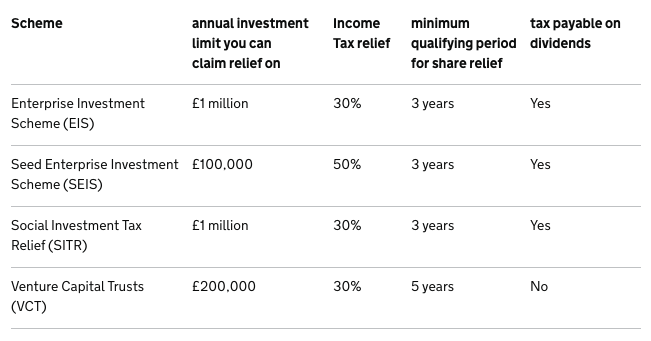Should You Invest In Your Friend’s Startup?
Understand the business but also the tax breaks!
Your friend is setting up a really cool tech business. She is raising some money and has offered you the opportunity to become one of the first backers. This may sound very exciting … but don’t blindly accept her proposal. The first thing you need to do is determine your investment goals. Are you investing money that you don’t need? What return are you expecting? The key rule here is: don’t invest money you can’t afford to lose.
Here are some other key basic rules to follow when investing in startups:
Review the Business Plan
To evaluate a private investment opportunity, you must see a written business plan. It can be a pitch, a memo or a presentation, and generally, it should include the following information:
What problem they are solving?
A description of the business
Industry overview and competitors
Founding/management team
Financial plan (current and projected performance)
Exit strategy (how will you make money?)
Following your review of the documents provided by the company, make sure you also perform your own due diligence (competition, team, market ...)
Meet the founding and management team
How important is the founding/management team? Very! Launching a business is hard work. Founders need to be 100% committed to their businesses and willing do whatever it takes to make things happen and get the work done. We hear people having great business ideas all the time, but the most important thing is execution.
You may want to check if you have shared connections on LinkedIn and ask for recommendations. Meeting management is also a great way to get a better understanding of their commitment and motivation.
Learn how to evaluate the business
To see how investors do it, I would recommend browsing through the investment opportunities on crowdfunding platforms. You can easily register on Crowdcube and Seedrs and have access to information on businesses, see the comments and questions and answers on the forums.
Determine how much you would like to invest
How much you can invest is also unfortunately how much you can afford to lose. On crowdfunding platforms, such as Crowdcube, you can invest as little as £10.
In the first fundraising “round” (angel investing), founders generally raise between £150k to £500k from a syndicate (a group) of angel investors. You may then be able to invest as little as £2,000, but generally the ask is between £5,000 and £10,000.
Benefit from tax advantages
In the UK, HMRC offers tax relief to encourage individuals to invest in companies through a number of venture capital schemes. You can get tax relief when you invest in small UK companies and social enterprises that qualify for venture capital schemes.
The amount and type of tax relief you can claim depends on what venture capital scheme you use to invest in a company and you meet certain conditions.
You can get tax relief through the following venture capital schemes:
Source: HMRC - venture capital schemes.
Document everything
Don’t just wire the money and rely on promises or trust. Document everything and keep copies in your files.
Working with a friend
You should assess the risks of going into business or working with a friend. We all like to think that going into business with a friend would be great fun, but it can make or break a relationship if investments don’t work out well.
And finally... Be prepared to be in for the long-run
Angel investing is very risky – you may well lose it all. But you will also have the opportunity to make a lot of money! In any case, be prepared to be in it for the long-run; generally three to eight years, perhaps more...


